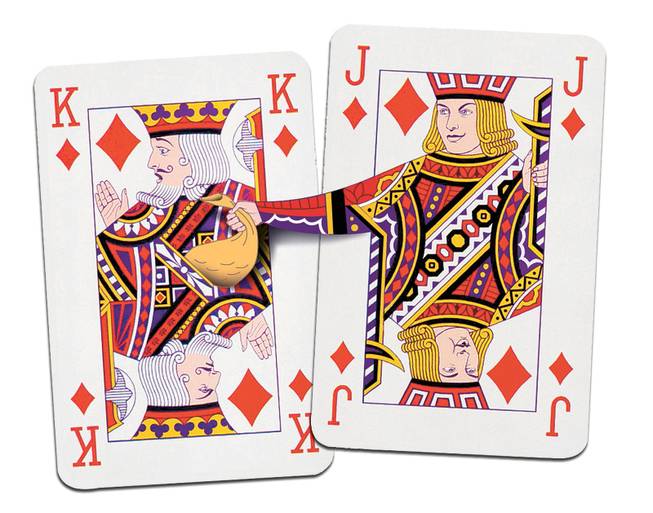Monday, Oct. 19, 2009 | 2 a.m.
Sun Coverage
Beyond the Sun
The state’s casino cops have been busy. Could recession-fueled money troubles be blamed for the brazen acts of theft that have been reported in recent months? Among them:
• Gaming Control Board agents arrested a man in July for allegedly exploiting a glitch that allowed him to multiply the money he inserted into slot machines and cash out with 10 times that amount. With no apparent accomplices, John Kane, according to the board, ripped off the Silverton and other casinos for tens of thousands of dollars.
• In August board agents arrested four casino supervisors at Planet Hollywood who are suspected of pocketing winnings after falsifying poker room payouts to show that players had won jackpots when they hadn’t.
• In September agents arrested a ticket writer at the Caesars Palace sports book for allegedly stealing chips used to pay for bets and passing them off to an associate who cashed them out. The same month agents caught a craps dealer at the River Palms in Laughlin pocketing $1,000 in chips that slipped from a hole in his pocket into his shoe.
• This month agents arrested a manager who was allegedly embezzling money from a small company that provides slot machines to locations such as gas stations and grocery stores.
Gaming board agents have made nearly 400 arrests in connection with casino and gambling-related crimes in Nevada this year, compared with fewer than 300 for all of 2008.
Regulators can’t explain the uptick, especially given that law enforcement resources to combat theft haven’t increased amid budget cuts. It’s logical, then, to assume that the poor economy may be leading more people to steal, said Jerry Markling, the Gaming Control Board’s enforcement chief.
Casino security consultant Willy Allison, who trains surveillance workers and founded the World Game Protection conference, says casinos nationwide have reported increased theft yet are frustrated in their efforts to catch criminals because of workforce cutbacks. Casino managers, Allison said, are increasingly concerned about their own workers, as low morale and ever-present cash make casinos ripe for employee theft.
“You’ve got staff on the floor whose tips have dropped 40 percent, they’re having trouble paying their mortgages and they don’t know whether they’ll have a job tomorrow,” he said. “You have opportunity, motivation and rationalization. People who were honest before the recession aren’t now, now that their children are starving.”
Add to that an increase in slot scams, which are especially maddening because they can be more difficult to spot than old-fashioned theft, Allison said. Cheats like Kane who have exploited a glitch by pushing buttons on a machine may not attract attention if they look like they’re gambling.
Slots are, like video games, governed by computer chips. Techno-thieves have discovered glitches by buying slot machines under false pretenses and reverse engineering them.
Successful cheats aren’t simply computer geeks but social networking experts who can hoodwink casino employees or approach them for their cooperation in exchange for a cut of the ill-gotten gains, Allison said. A recent slot scam at the Cannery-casino-chain-owned Meadows Racetrack and Casino near Pittsburgh involved men who posed as high rollers and persuaded a slot technician to tinker with the machine, he said.
Casinos are reluctant to publicize scams, he said, yet more widely disseminating such information could help the industry better combat thieves who seek out not only glitches but also weak spots in staffing.
Casino accounting departments have a crime-fighting tool: For easier tax collection, large casinos are required by law to have online accounting systems that monitor the flow of money in their slot machines. By networking their slots, casinos can more easily detect any tinkering with a machine or an anomaly in how the machine is paying out.
In addition to testing slots for glitches before the machines are played by the public, the Gaming Control Board’s Technology Division identifies and fixes flaws discovered while slots are in use. When a flaw is uncovered, slot manufacturers must remove the defective machines and submit corrective changes for board approval.
Even with casinos’ anti-theft technology and regulatory oversight, glitches can still occur. “It is usually a matter of time” before they are detected, however, said Travis Foley, the Gaming Control Board’s technology chief.
While casinos are good about spotting shady-looking activity on the casino floor, they don’t often employ IT security experts who are skilled at detecting suspicious financial records, which might be the first indicator of larceny, Allison said.
“There are hundreds of new slot games each year with new software,” he said. “I don’t think any of us can keep up with it.”


Join the Discussion:
Check this out for a full explanation of our conversion to the LiveFyre commenting system and instructions on how to sign up for an account.
Full comments policy